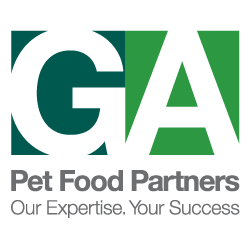Collagen & collagen peptides in pet food
Article by Dr Adrian Hewson-Hughes | Nutrition, Food Safety & Innovation Advisor, GA Pet Food Partners.
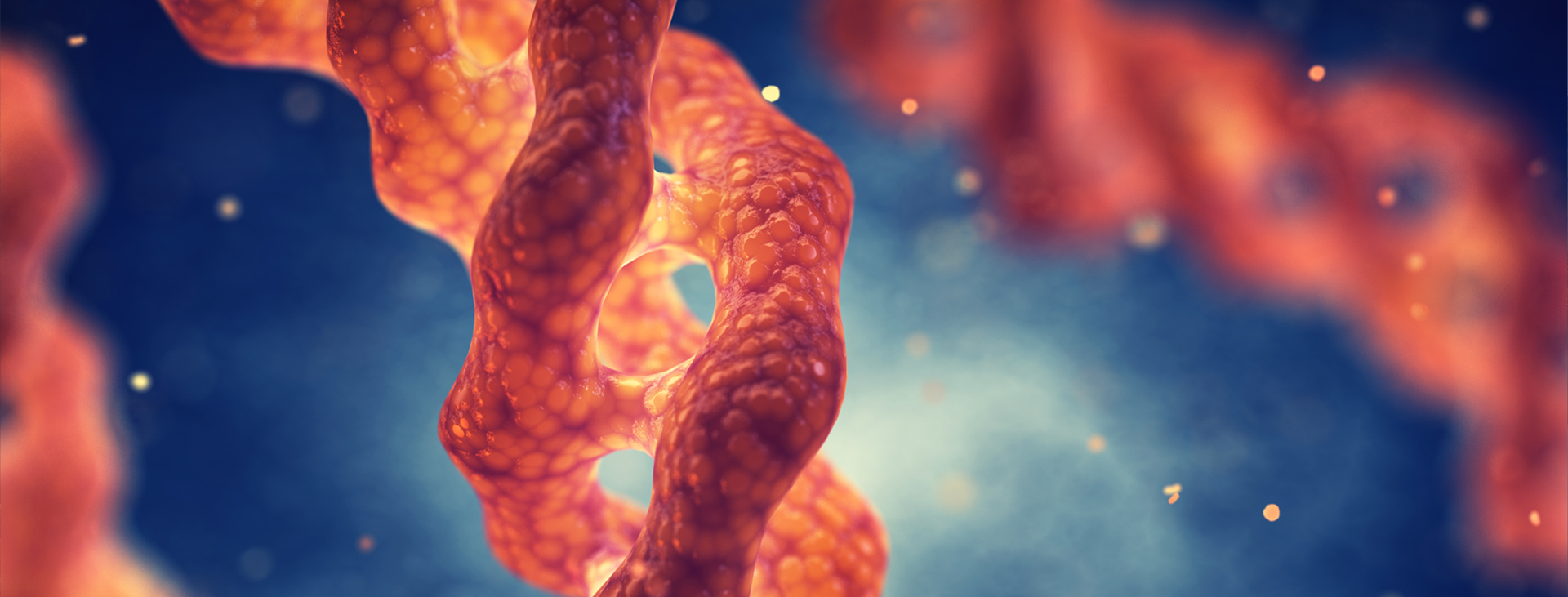

What is collagen?
In nature, collagen is a protein found exclusively in animals, especially in the skin, bones and connective tissues of mammals, birds and fish. Strictly speaking, collagen is actually a family of proteins, and together they are the most abundant proteins in mammals, accounting for around a third of the whole-body protein content.
The name ‘collagen’ comes from the Greek word κόλλα ‘KÓLLA’, which means ‘glue’, and the suffix ‘gen’ denotes producing.
What does collagen do?
In very simple terms, collagen(s) provide/maintain the structural integrity of various tissues and organs throughout the body. Different ‘types’ of collagen are found in different tissues of the body. Still, all share the same basic characteristic of having three polypeptide chains coiled together in a triple helix structure. Collagen types I, II and III are of most interest and relevance for the health and well-being of our pets.
Type I collagen is the most abundant collagen, making up more than 90% of the protein content of bone and is the major collagen of tendons (this type of connective tissue attaches muscles to bones) and ligaments (this type of connective tissue attaches one bone to another bone – holding joints together), providing structure and strength to these tissues.
Type I and III collagen is abundant in the skin’s dermis layer, providing structural support and elasticity to maintain the firmness and suppleness of this organ – a very important barrier to keep moisture in and invading organisms and toxins out of the body.
Type II collagen is the predominant component of cartilage, the extremely strong, flexible and semi-rigid support tissue found at points where two bones meet, providing a smooth surface that allows joints to move easily and a ‘cushion’ effect to absorb the shock of impact, especially on the ends of weight-bearing bones (e.g. hip, elbow joints).
Collagen is also present in all the smooth muscle tissues, blood vessels, digestive tract, heart, gallbladder, kidneys and bladder, holding the cells and tissues together.
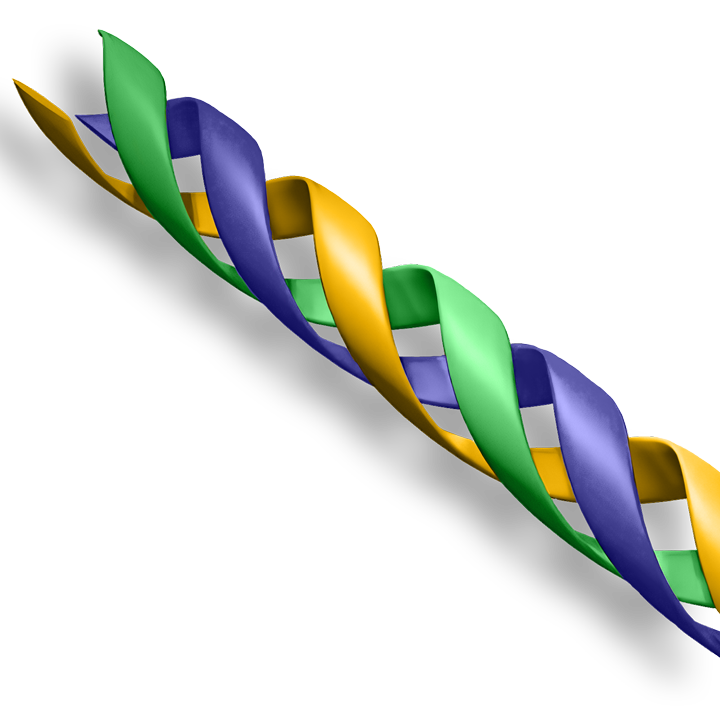

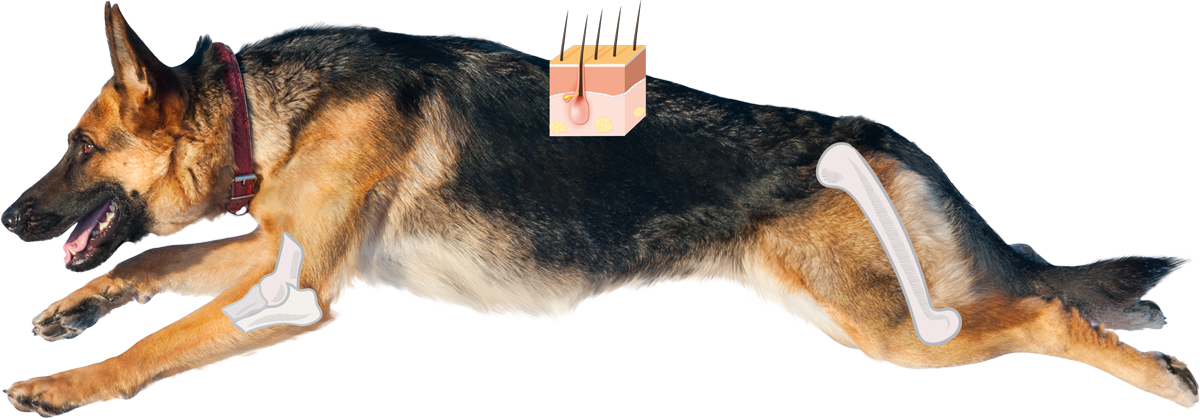

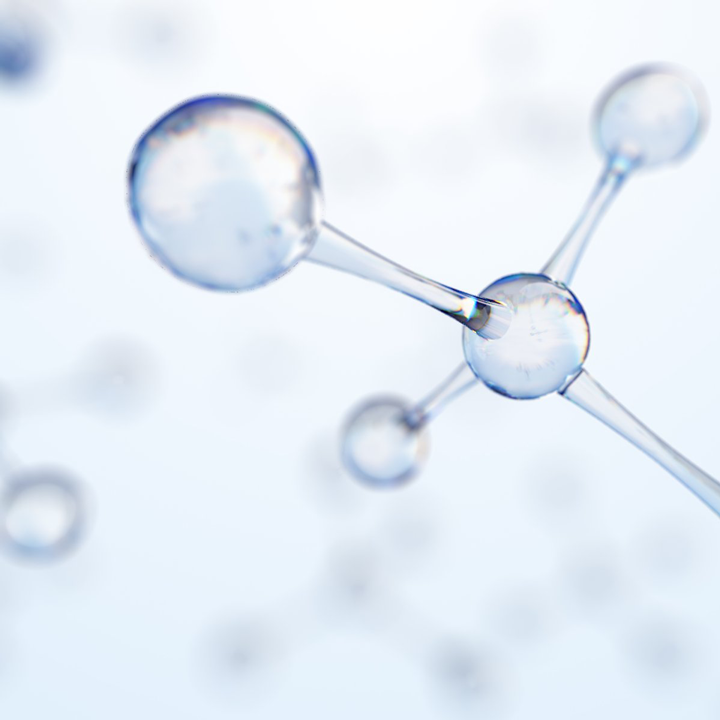
How is collagen made?
Like all proteins, the building blocks for collagen are amino acids. However, collagen has a distinctive amino acid composition and sequence, being particularly enriched with glycine (Gly) and proline (Pro), as well as a derivative of proline, hydroxyproline (Hyp). These amino acids have a regular arrangement in each of the three collagen subunit chains. The sequence often follows the pattern Gly-Pro-X or Gly-X-Hyp, where X may be any of various other amino acid residues.
All types of collagen are composed of 3 polypeptide chains which are formed into a triple helix. Depending on the collagen type, these three chains might all be identical or may consist of two or more different chains.
As with all proteins, collagen does not last forever – a natural cycle of breakdown and regeneration occurs constantly. However, the breakdown can be exacerbated by things like daily wear & tear and ageing. With age, collagen production slows, and connective tissue structures weaken. The results are that the skin gets thinner and easier to damage, tendons and ligaments become less elastic, joints get stiff and/or more painful to move, etc.

Dietary collagen and collagen peptides
A unique feature of GA Pet Food Partners is being able to collect the finest meat and fish ingredients at source. We know that these ingredients naturally contain collagen, although the amounts vary between different types of animal tissues. If we test different parts of a whole chicken, for example, we see that collagen is most abundant in the skin, followed by the carcass, (from the bones and cartilage), with lower amounts in skeletal meat and internal organs (viscera).
Kibbles made with natural collagen-containing ingredients, such as certain Freshly Prepared meat and fish materials, will be digested and absorbed by the pet providing the building blocks (particularly amino acids glycine and proline) for the body to make more collagen, which can help maintain healthy bones, joints and skin.
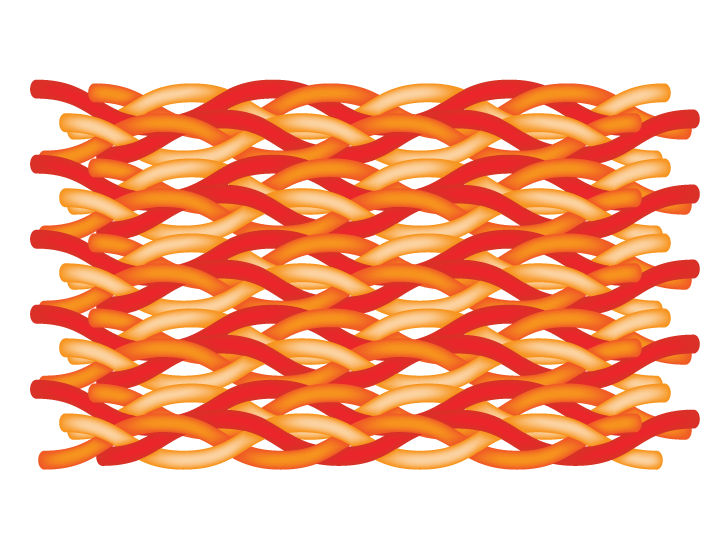
Collagen Protein
Structural protein that provides strength and structure to the bones, cartilage, skin & connective tissues.

Stomach
Collagen in the diet is broken down into amino acids and peptides by enzymes in the stomach and small intestines.
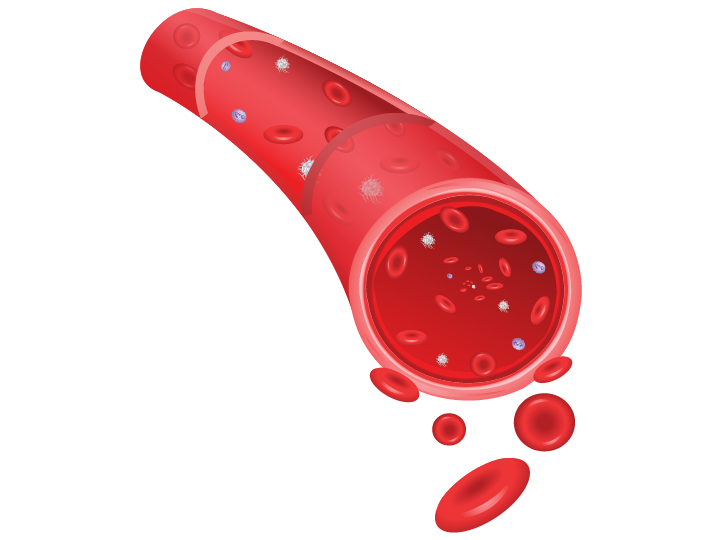
Bloodstream
The absorbed peptides and amino acids are distributed via the bloodstream to the rest of the body.
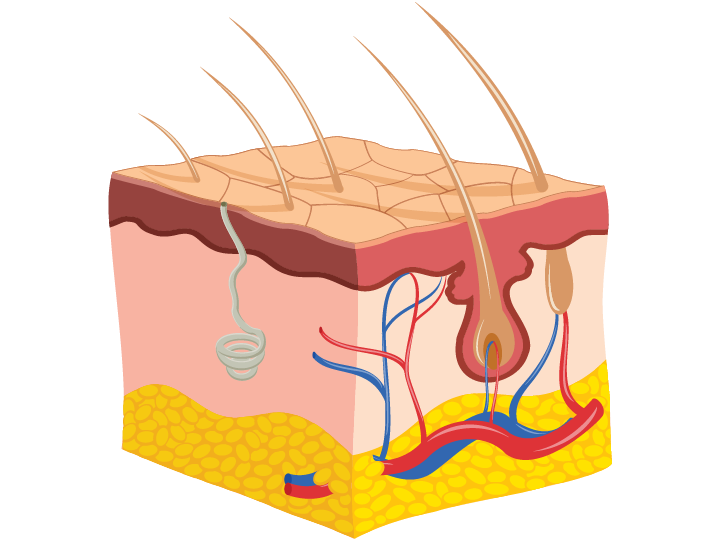
Collagen Based Tissue
The amino acid building blocks are used to build and restore collagen-based tissues.

Potential benefits of dietary collagen and collagen peptides
Although research in dogs and cats is limited, evidence from studies in other animals and humans suggests that dietary intake of collagen and collagen peptides may have a number of beneficial health effects in pets.
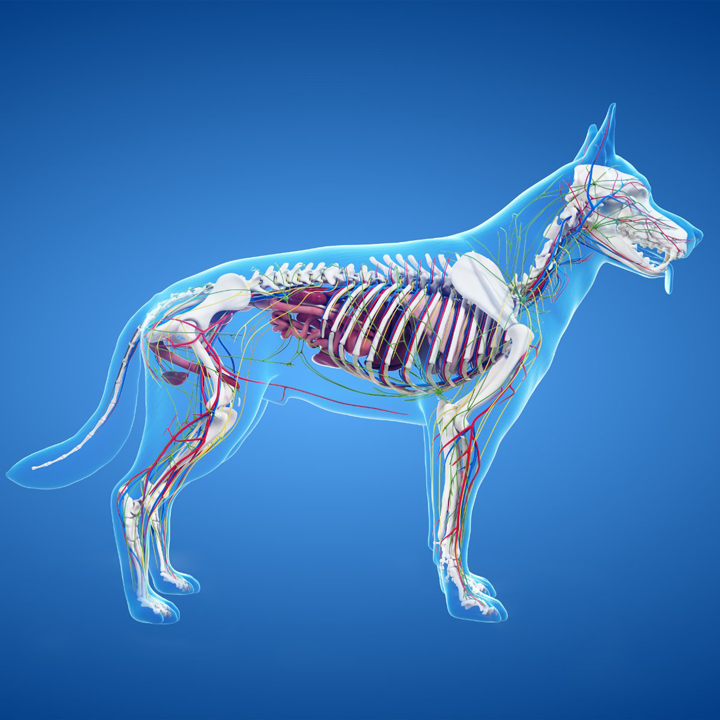
Bone Health
Collagen is essential for bone health. It provides the protein matrix (‘scaffolding’) on which calcification (bone mineralisation) can occur.
Bone collagen undergoes continual breakdown, repair and renewal, so providing nourishment through dietary collagen or collagen peptides is important to help maintain lifelong strong, healthy bones.
Skin & Coat Health
Like in humans, the dermis layer of the skin in dogs is mainly made of collagen – providing a good supply of collagen in the diet should help maintain skin elasticity and support the skin and fur health.
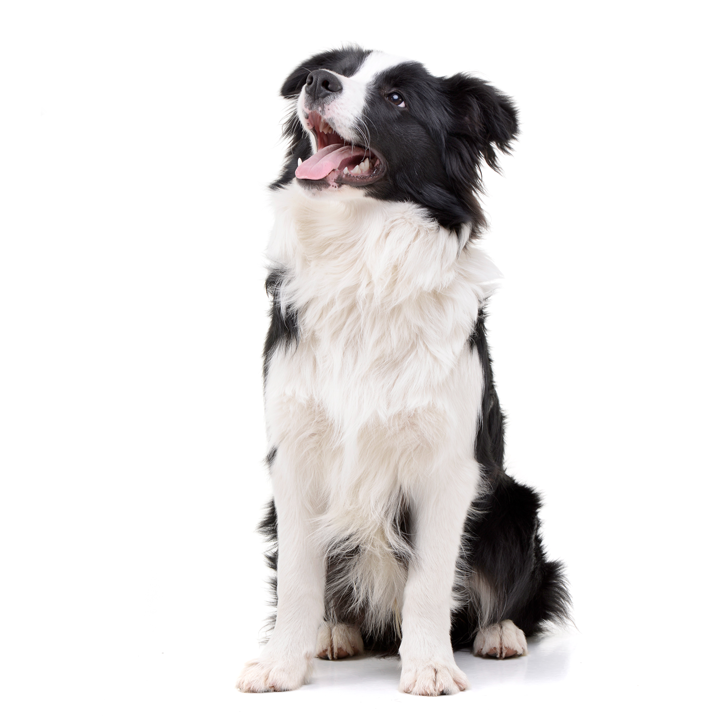
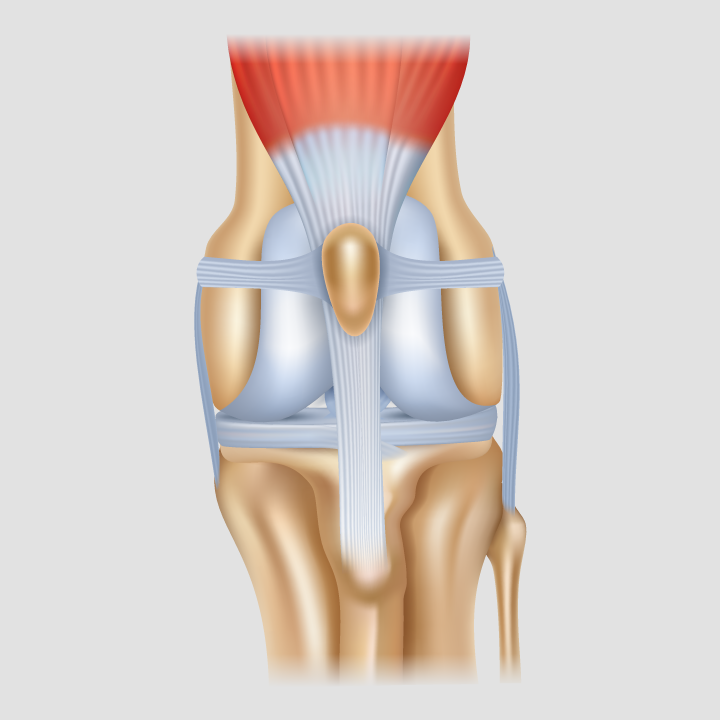
Joint Health
Healthy joints require healthy cartilage and ligaments in particular plus strong muscles, tendons and connective tissue – all of which contain high levels of collagen.
Maintaining healthy joints is as important in young, active, healthy dogs as preventing the problems that come with ageing, like joint pain and mobility issues.
